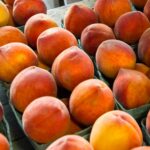Australia: grape by-products reduce cow methane gas emissions
Australian scientists have discovered grape waste products could be instrumental in the battle with climate change and help cows produce better quality milk.
The study by the Department of Primary Industries (DPI) in Victoria found adding the stems, skins and seeds (grape marc) from wine grapes to dairy cow feed reduced methane gas emissions, increased milk production and improved the product's health properties.
Scientists at DPI's Centre for Dairy Excellence in Ellinbank added 5kg (11lbs) of dried grape marc to cattle feed over 37 days and compared milk yields, milk composition and methane emissions with another group of cows that was fed their normal diet.
Results showed the supplement reduced emissions by 20%, increased milk production by 5%, and increased the healthy fatty acids in the milk when green feed was not available.
DPI scientist Peter Moate said the researchers were stunned by the results.
"We now know that supplementing a dairy cows’ diet with dried grape marc increases the healthy fatty acids in milk by more than six times that of standard autumn fodder," he said.
"These particular fatty acids are extremely potent in their ability to benefit heart health and are also known to help fight cancer, diabetes and arthritis.
"We’ve managed to utilise what is currently a waste product for the wine industry and turn it into a very valuable feed source."
Moate added that Australian winemakers produced around 200,000 metric tons (MT) of grape marc each year, however there were limits to its movement due to quarantine issues in preventing the spread of grapevine pest phylloxera.
He said the tests were conducted during the late stage of the lactation cycle and researchers hoped to replicate the success in another test at times when cows were producing more milk.
"It’s possible that the benefits of using grape marc as a feed supplement in early lactation could be even more significant," he said.
Photo: DPI
www.freshfruitportal.com








































